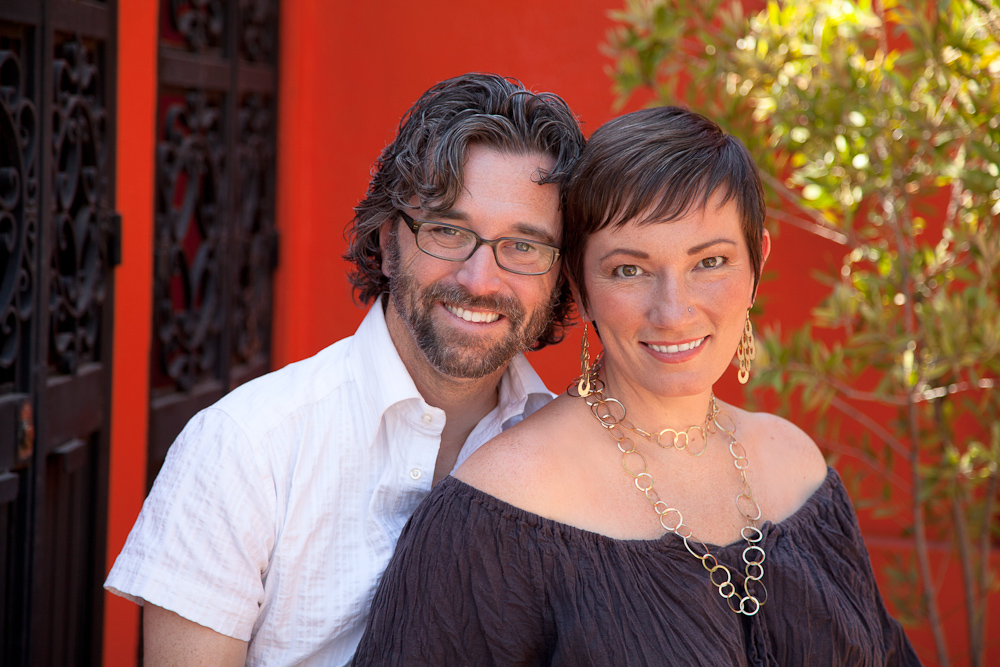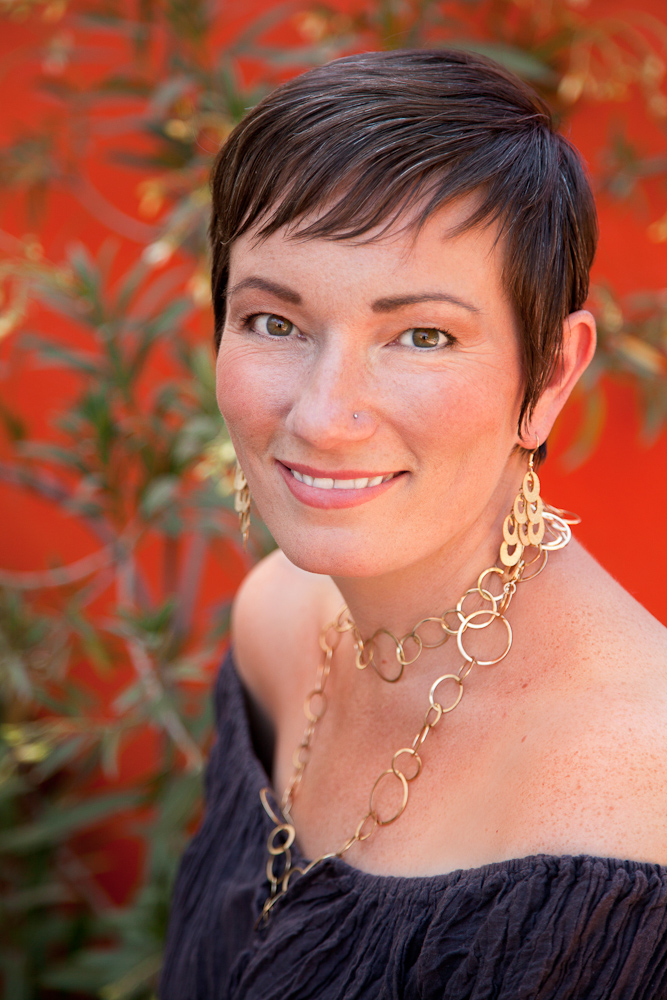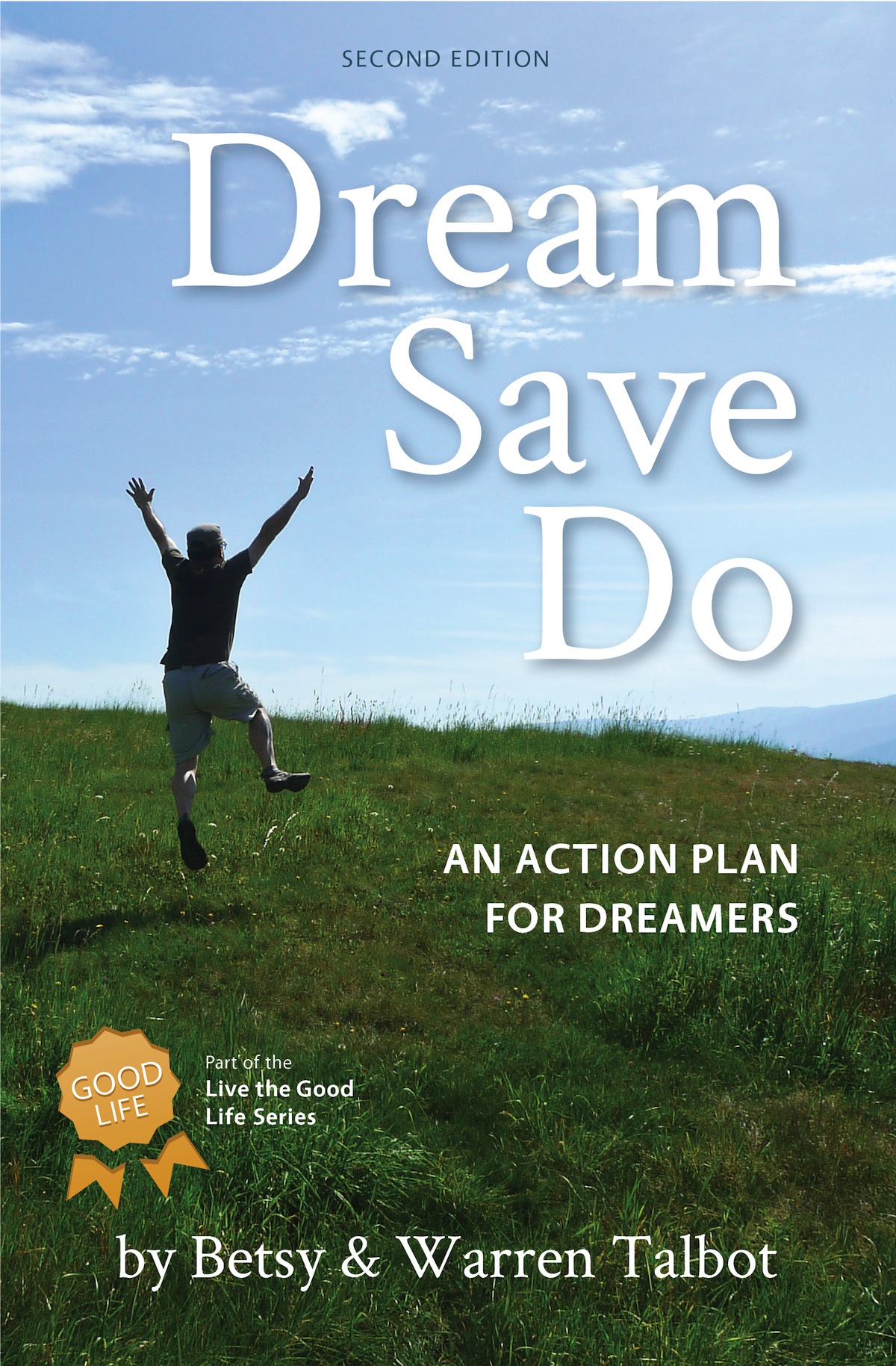Do you ever wonder what it would be like to sell everything you own and go off to see the world? Betsy Talbot and her husband Warren did just that! They are not just writing partners, they’re also honest-t0-goodness world travelers without a technical “home.” They hop around house-sitting all over the world, and do their work from wherever they are.
(photo courtesy of Betsy Talbot)
Betsy did me the honor of answering my 15 questions about how they have done this, and what secrets she has to her personal creative success. I hope you’ll enjoy her story — maybe she’ll inspire you to create your own life adventure!
(photo credit: Tara Gimmer)
1) Does the creative process ever feel like an act of rebellion to you? Do you ever get reminded that you live your life outside of “societal norms” like a 9-5 workday? Because of our traveling and minimalist lifestyle, I live outside “societal norms” anyway, so writing feels almost like the most normal thing I do. It’s when I feel most connected to people because I’m thinking of my audience when I write. So I guess I’m least rebellious when I have a laptop in front of me (unless, of course, you read the words I’m writing).
2) What’s the messiest / ugliest part of your process? Most definitely it is the start. I take the Twyla Tharp approach and gather a lot of information before beginning a project. My “box” is actually an Evernote file which then morphs into a Scrivener file, but it is full of information, quotes, ideas, snippets from emails, interviews, and also a small notebook where I record flashes of inspiration. The hard part is going through all of it and coming up with a sensible outline and plan to write the book.
3) What’s the most beautiful / glorious part of your process? On first thought I would have said “when it’s finished” – but that’s actually a bittersweet moment for me. Getting started is hard, and I always end up throwing away the first 10-20K words. It’s like a warm-up until I get my flow. So I’d say the glorious part starts right after I throw away the first words and really get down to business. You can feel the story welling up and pouring out, and it’s an almost intoxicating feeling.
4) How does fun come into play in your work? My writing partner is my husband Warren, who is great at pulling out information and keeping the story intact. He’s a witty, funny person, and working with him brings an added dimension of joy I just don’t get from solo projects. We spend a great deal of time hiking and walking in nature as we discuss books and writing projects, and I love the combination of physical and mental activity with someone I love. There’s an energy and momentum there that just makes the inevitable “butt in seat” time more enjoyable.
5) What is one key practice vital to your career success? How often do you engage in this practice? I set and keep deadlines. My bigger goals are brought down into daily requirements on my calendar so that everything happens on time. In order to be successful as a writer, you have to treat it as a business. Creativity is a habit.
6) What would you say to someone who wants to be more creative? Practice every day, share your work and request feedback, and separate your ego from your work product. All feedback will help you grow in your craft, even the feedback you choose to disregard. It’s learning to take that outside opinion and do something with it that makes you a better artist. You can’t be closed and fearful and produce your best work.
7) What’s one opportunity you haven’t had yet that you’d like? How much does dreaming up new challenges motivate you in your career? I’d love to create some more intensive courses to back up the information in our books. Some people want more of a helping hand along the way, or at least someone to encourage them, and this seems like a natural fit for what we do. We’ve just started creating the first multimedia course to go along with our book, Getting Rid of It: Eliminate the Clutter in Your Life, and it will be available in January. Then in fall 2014 we’d also like to host our first live retreat for readers of our book, Dream Save Do: An Action Plan for Dreamers. We thrive on challenges and dreams, and we are always actively working toward something. I think it is the fountain of youth, no matter what your profession or lifestyle, to try new things and challenge yourself on a regular basis.
(photo credit: Tara Gimmer)
8) What made you decide to sell your home and become a house-sitter? We didn’t actually set out to become house sitters. When two people close to us experienced life-threatening illnesses in their 30s, we took stock of our lives and decided we weren’t living our dream. We wanted to see the world, and we spent 2 years saving and downsizing all our possessions to make it happen by the time we reached 40. As part of the process, we discovered housesitting. It’s a budget-friendly way to see the world, especially expensive destinations like Europe. We use a combination of housesitting, apartment rentals, visits with friends, and hostels to for our accommodation.
9) How has being unattached to any one place affected your thinking? In what ways have you grown that you never expected? I’m not sure we have enough space for this answer! In short, it’s taught me to always be aware of my environment and notice things (very good for a writer). We have to “learn” every new city when we arrive, from where to stay to how to use public transport to where to buy groceries to where to go for entertainment. This constant evaluation of options is also great for creativity and self-confidence. You could drop me anywhere in the world right now and I think I could manage, which is a very powerful feeling. I’ve never felt more in control of my destiny than now when I have no permanent home, regular job, or possessions. Overall, I’m just “more” than I was before (though physically about 50 pounds less!)
10) What is one regular creative ritual you can’t function without? Are rituals a part of what keeps you feeling at home, even though your home changes frequently now? Coffee. I have a hard time writing without the comfort of a mug of steaming java next to me. Some countries are not great with coffee, so I’ve learned to adjust to instant coffee when needed. It’s not about the taste, more the ritual of “it’s time to sit down and write.” I also like silence. I’m not the type to write in a coffee shop, with music, or in a public place.
11) In what ways does a frequent change of perspective refresh your work? In what ways does it challenge it? I have always craved change, even before we were nomadic. It fills me up to see new places, meet new people, and discover different ways of living. And I’m a huge history buff. So this kind of lifestyle feeds my creativity like a drug. The downside, of course, is that writing is a practice and takes regular commitment. The muse can be trained to appear at the same time every day if you do, and travel doesn’t always make that possible. So we’ve adjusted our travel style in the past year to live for 6 months or so in one place to work on a creative project and then travel the rest of the time. It gives us the best of both worlds.
12) Both your career and your lifestyle are pretty darn creative. Can you talk about that a bit? What drives you to work and live so creatively? I can’t stand the thought of stagnating creatively, intellectually, physically, or emotionally. In my 20s I was very trapped by what I call the “good girl” syndrome, pleasing everyone else instead of myself. And since I’ve broken free of those constraints, it’s very hard for me to think of living in any way that doesn’t interest me. And when you’re engaged and interested in your life, you can’t help but be creative. I chose a partner who feels the same way about life, and between the two of us we’re always trying new things, pushing our comfort zones a bit, and enjoying the personal and interpersonal growth that comes from it.
13) What is the writing process like for you? Would you offer any tips for aspiring writers or writers who need help getting unstuck? I take a very logical approach to writing, probably because of my business background and definitely because of my writing partner, Warren. This actually makes the writing process easier, though it’s still sticky in the initial stages when we’re just compiling research and ideas.
My advice would be not to get overly attached to your words. If it’s not working, don’t force it. Learn to cull vigorously. Accept that you’ll write a lot of crap before you get to the good stuff and be willing to ditch it. So many times writers try to keep “all that hard work” even though it’s not working. It just gets in the way.
Last, I’d say that I don’t believe in writer’s block. Sometimes it does take a while to get a flow going or organize your brain around an idea, but it will take a lot longer if you try to do it away from the keyboard. When you feel stuck, write anyway. Write the same word over and over again if you have to. But write every day and pretty soon you’ll train your muse to show up when you do. But you have to fight it out at the keyboard. Writers write.
14) In what ways is the process different when you are working with your husband? Let’s just call it what it is: I’m essentially getting negative feedback from the guy I’m sleeping with. And we both have strong personalities and opinions that don’t always agree, so it gets heated. And in the beginning it was tough on our relationship. But spending 24/7 with someone has a way of making you work through your problems (whether you want to or not!) and we’ve come to a pretty good process.
We have distinct roles in a collaboration process, and that’s what makes it work. Otherwise you get into dual work or nagging scenarios, which isn’t good for your project or your relationship.
We’ve learned so much about relationships and communication from living and working together 24/7 since 2010. In fact, it’s the subject of our next book!
15) What is the most crucial step someone could take towards beginning to live the life they want right now? If you don’t know what your dream is (and a lot of people don’t), the first step is to begin eliminating the things you don’t like in your life (possessions, relationships, activities, commitments). This gives you the space to begin bringing in more of the things you like, or at least want to try. It this process of eliminating and adding that will key you in to what you really want your life to look like.
We wrote about the entire process of dreaming to doing in our book, Dream Save Do: An Action Plan for Dreamers. In every success story we’ve received, they all start with this process of defining a dream lifestyle (by sometimes defining what you don’t want first!). Everything else flows from there, because if you can visualize what you want your life to look like, you can easily do the “working backwards” of the image to see what needs to happen first.
*****
If you want to learn more about Betsy and Warren, visit them online at Married with Luggage.
What do you think? How much of life as you know it could you give up, in order to make room for more of what you really want?







